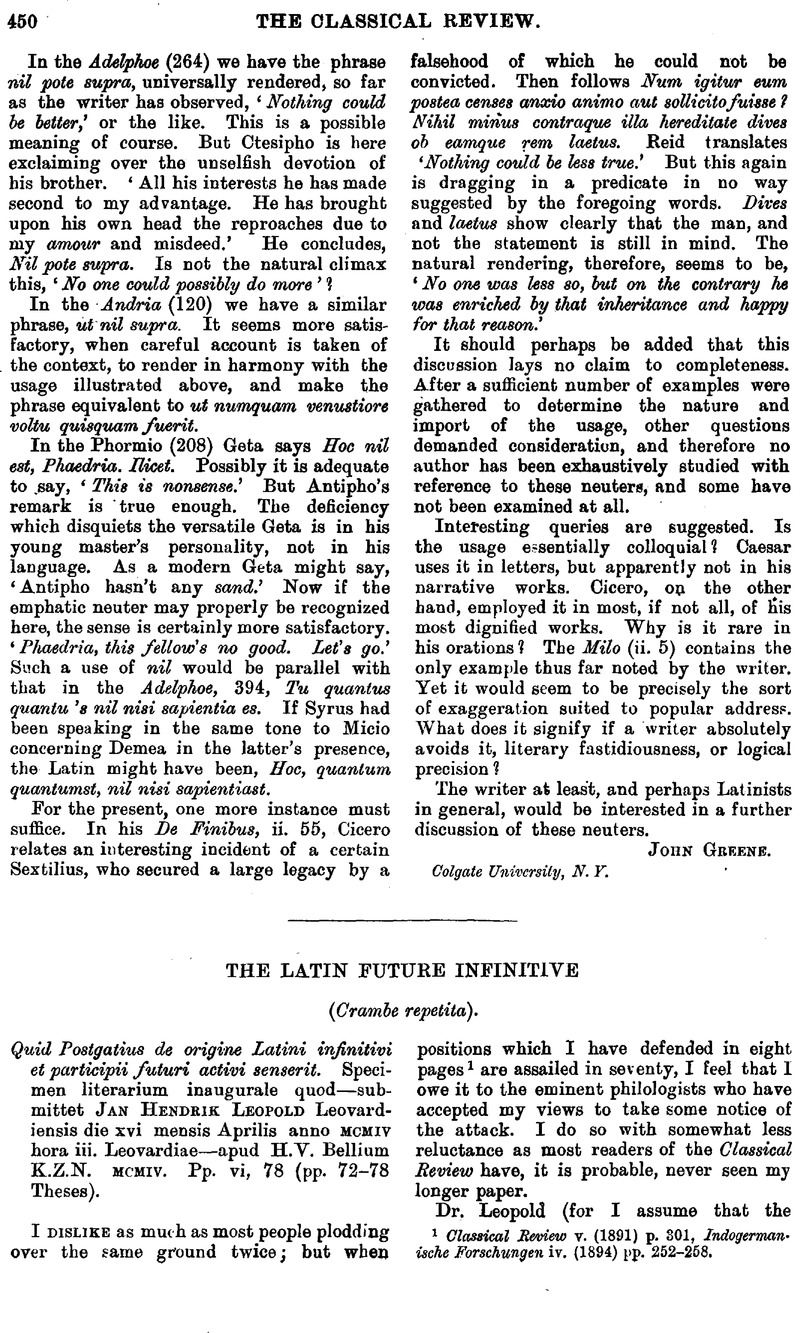Article contents
The Latin Future Infinitive
Published online by Cambridge University Press: 27 October 2009
Abstract

- Type
- Review Article
- Information
- Copyright
- Copyright © The Classical Association 1904
References
page 450 note 1 Classical Review v. (1891) p. 301, Indogermanisehe Forschungen iv. (1894) pp. 252–258.Google Scholar
page 452 note 1 This observation, so far as I know, has not been disputed during the ten years that have elapsed since it was published and Dr. Leopold accepts it. His figures for the two dramatists are Plautus 118 omissions 26 insertions. Total 144. Terrnce 56 omissions 18 insertions. Total 74. But for all this the grammars continue to mis-state the facts, e.g. the recent ones of West (1902), Allen and Greenongh (1903) and Hale-Buck (1903).
page 453 note 1 Dr. Leopold also denies the aphaeresis with the perfect participle and quotes, with similar unconsciousness of any difficulty, Rud. 871 ‘ ut nances habe.’
page 453 note 2 This agrees well with my own enumeration, 128, as I excluded the examples from the Plautine prologues which are 4 according to Dr. Leopold.
page 453 note 3 Dr. Leopold gives a list of passages where the substantive verb is omitted with the perfect in finite moods. This is sheer superfluity and confuses the issue. The omission of the copula with the finite forms of the perfect would be relevant if we were considering its non-insertion in the perfect infinitive. But upon this there is no question.
page 452 note 4 Stat. Theb. 7. 791 sq. which I formerly quoted does not belong here. Still less do Virg. Aen. 4. 519 ‘ moritura’ and Stat. Theb. 1. 347 ‘uentura’ (quoted by Dr. Leopold) where the participle is au ordinary attribute.
page 453 note 1 Dr. Leopold mistakes in supposing that I have passed over these constructions in silence (‘quod Postgatius silentio praeterit’ p. 38). For at the foot of the page from which he has just been quoting occurs this note ‘If the pronoun be omitted’ [with the Perf. Inf.] ‘the only construction possible is the poetical graecism of Verg. Aen. 2. 377’ ‘sensit medios delapsus in hostes,’
- 1
- Cited by




